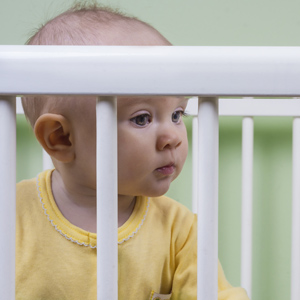Can prison nurseries help provide children with healthy foundations?

Image from Shutterstock.
If a baby’s mother is in prison, is the baby better off going there too, as opposed to staying with relatives or entering the foster care system? Perhaps, say individuals who support the idea of prison nurseries.
According to a recent Atlantic article, a Columbia University School of Nursing study found that participation in prison nursery programs could form good foundations to protect children from environmental risks when they leave.
Prisons in eight states have nurseries, most of which allow inmates to live with children up to 18 months old, the article reports. It also mentions a 1987 survey that found the United States was one of five United Nations member countries that did not generally provide accommodations for children born during an inmate’s prison term.
In states without prison nurseries, inmates give their children to relatives or foster care hours after birth. According to the article, one in 25 female inmates are pregnant when they enter prison.
The study, titled “Maternal and Child Outcomes of a Prison Nursery Program” see key findings (PDF) focused on New York prison nurseries. It found that 60 percent of the children who participated in the programs had signs of secure attachment with parents. Comparatively, only one-third of the imprisoned mothers surveyed had formed secure attachments with their own parents.
Another study, by University of Nebraska professor Joseph Carlson, found that out of the Nebraska female inmates with children surveyed over a 10-year period, only 17 percent of the nursery participants returned to prison following release. Comparatively, there was a 50 percent recidivism rate for the mothers who were separated from their newborns.
Alternatively, some say that placing newborns in prison is not good for them, and argue that that behavior leading to incarceration demonstrates bad parenting. In a paper published by the Utah Law Review, College of William & Mary law professor James Dwyer noted that if the country started placing mentally disabled or senile adults with incarcerated relatives, there would be significant disapproval.



